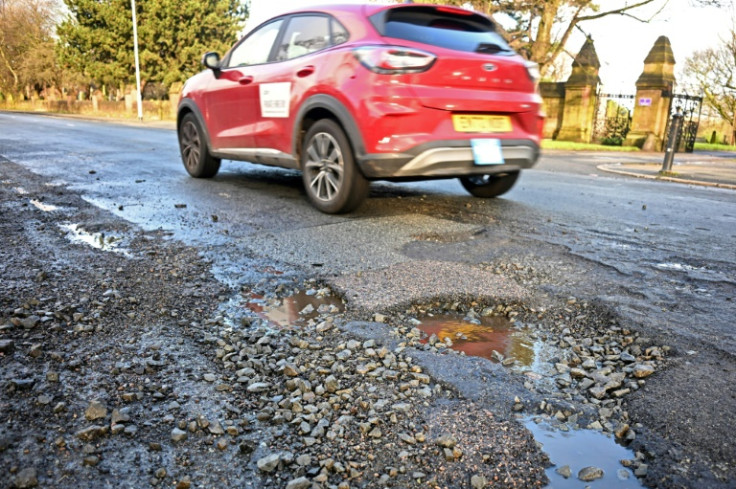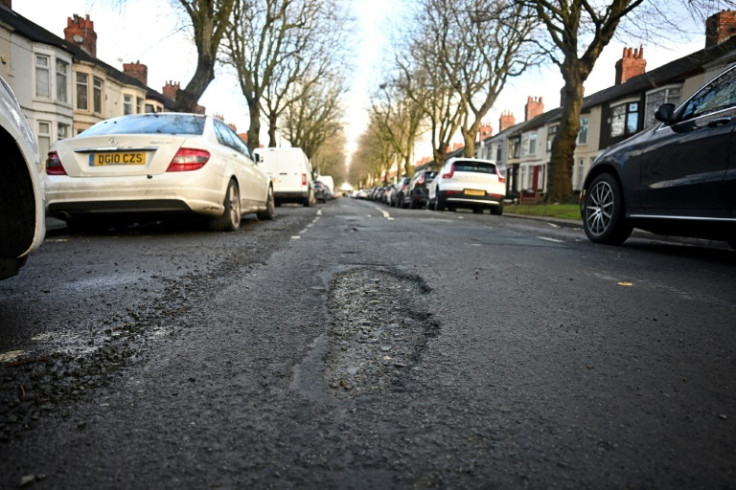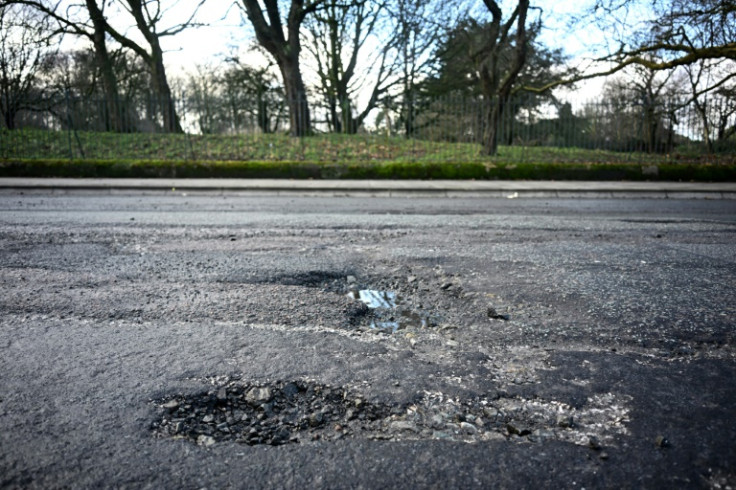
Dotting the asphalt, they come in various shapes and sizes, costing drivers a fortune in vehicle repairs and even lives. In Britain, potholes are increasingly a scourge and an obsession.
Potholes across the UK are thought to number more than one million, according to vehicle-breakdown company RAC, owing to a widely-perceived lack of government investment for long-lasting repairs.
The bothersome road craters are formed in the winter when water that seeps into road cracks, freezes and bursts.
For some, the poor state of Britain's roads is symptomatic of the crumbling state of infrastructure across the country, including Victorian-era hospitals, schools and sewers.
"Our roads are in a horrendous state because of lack of investment over decades by successive governments and authorities," lamented Mark Morrell, an ardent 63-year-old activist, dubbed "Mr Pothole".
"The UK road network is like the blood supply to the UK economy and it's been neglected," he told AFP.
Morrell's eye-catching social media content includes floating rubber ducks in a pothole, filling another with instant noodles and riding a bright orange tank to parliament in London.
He pleads for a long-term road maintenance policy, to avoid the return of the craters at the slightest frost.
Morrell predicts that potholes will be among the five biggest issues in the UK general election expected this year.
They have also caught the attention of Prime Minister Rishi Sunak, whose Conservative party is trailing badly behind the main opposition Labour in polls.
Sunak in November pledged to tackle "the scourge of potholes" with an "unprecedented" GBP8.3 billion ($10.5 billion) of funding over 11 years for road repairs in England.
Controversially, the money forms part of savings delivered after Sunak scrapped a key leg of a planned new high-speed railway, HS2, due to soaring costs.
Morrell meanwhile claims the amount set aside is a fraction of what is needed.
Potholes are not unique to Britain and nor do they all look the same, earning them different nicknames.
"There's no escaping" the Alcatraz, or cluster of potholes, RAC claims in a light-hearted assessment on its website.
The Sniper is hard to spot, while a chasm-like Canyon is "a complete nightmare for two-wheelers".
To mark National Pothole Day, Britain's biggest vehicle-breakdown company, the AA, said it dealt with nearly 632,000 pothole-related incidents in 2023, the highest in five years.
It added that pothole damage cost UK motorists GBP474 million last year.
According to the Asphalt Industry Alliance, more than GBP14 billion is needed to fix a backlog of repairs in England and Wales.
In 2022, singer Rod Stewart was filmed filling a pothole with gravel near his plush home close to London.
The performer, who released "Hard Road" in 1974, said at the time: "My Ferrari can't go through here at all."
Morrell is meanwhile not alone in harnessing his creative side to highlight the UK's pothole plague. Across the country, people spray paint around the damage, hoping it will force local councils to act quickly.
Such artistic endeavours also alert drivers and riders, even more so when a hole is surrounded by a phallus, as drawn by the artist known as Wanksy, in Manchester, northwest England.
Comedy on the road can be found also in Essex, the county where Stewart carried out his DIY work. A resident there creates pothole scenes using his grandchildren's toys.
One shows a Playmobil figure water skiing in a rain-filled hole, while another features a model Loch Ness Monster partially submerged.
Taking inspiration from street artist Banksy for his alias, Wanksy got to work after seeing his cyclist friends end up in hospital.
In the last decade, 23 cyclists have died in accidents blamed on potholes and other road defects, noted Duncan Dollimore at lobbyists Cycling UK.
The organisation's work involves having local councils fix potholes.
"It's partially successful but the big win would be to move them into a culture of maintaining the roads before the defect arises," he told AFP.
Repair techniques may soon be transformed, however.
The University of Liverpool is helping to develop a pothole-filling robot powered by artificial intelligence.










